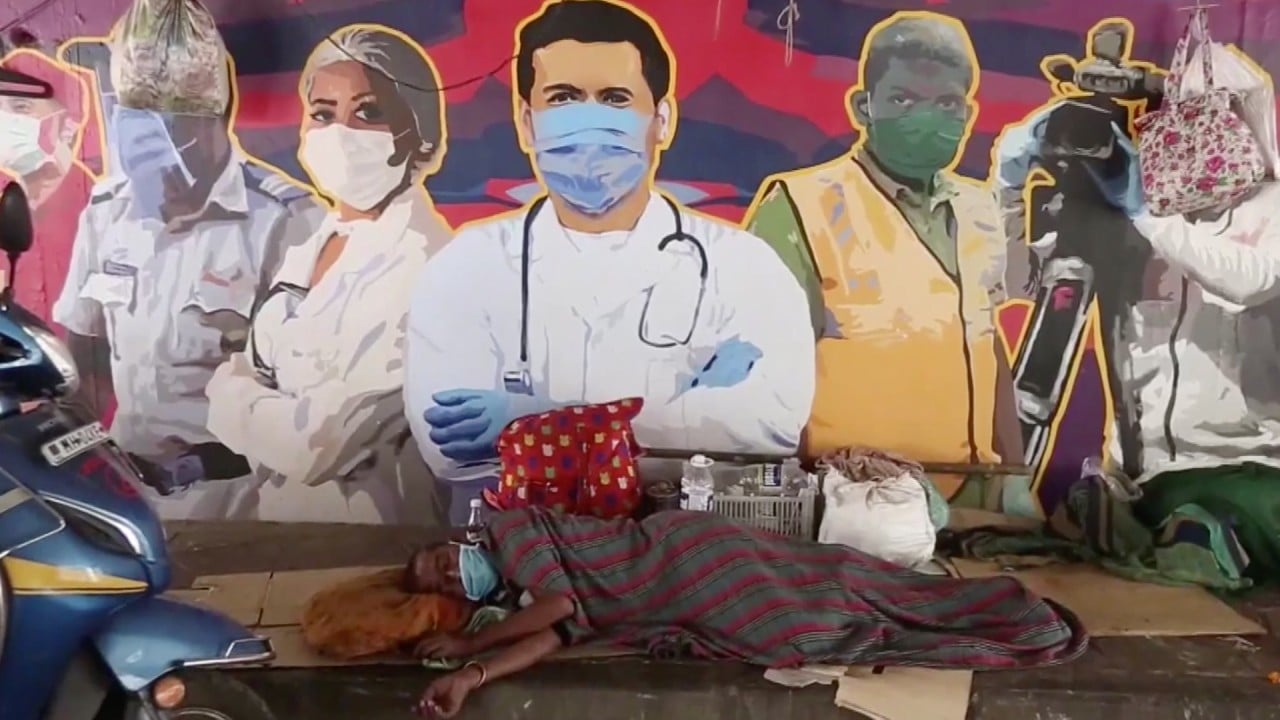
Will India’s Covishield export halt amid coronavirus surge hurt its vaccine diplomacy?
- Officials have defended the decision to ‘calibrate’ Oxford/AstraZeneca vaccine exports made by the Serum Institute of India as the country experiences a second wave
- But while production is being ramped up, the temporary halt in deliveries could affect Prime Minister Narendra Modi’s soft power efforts
“We have supplied more vaccines globally than have vaccinated our own people,” said India’s representative at the UN General Assembly last Friday. Since January 20, India has sent over 60 million vaccine doses to 71 countries, and only achieved the same number of domestic vaccinations on Sunday.
The remarks were in response to grumbling in some world capitals that the SII was not delivering on its contracts. British Prime Minister Boris Johnson even sent his personal envoy, Lord Eddie Lister, to New Delhi last week to seek reassurances about the UK’s AstraZeneca doses.
Until the past fortnight, India’s balancing act was working well. Its coronavirus cases were at the lowest number in months and it was vaccinating frontline workers and the elderly. With some 60 million doses rolling off the SII’s assembly line every month, bringing the total to 200 million, there was enough supply for domestic needs and for exports under Prime Minister Narendra Modi’s ‘vaccine diplomacy’. Under this policy, India began sending vaccines first to its neighbours and then to other countries, in some cases as donations and in others as commercial sales.
AstraZeneca vaccine’s global roll-out woes mount as India halts exports
While India is also using a locally-developed vaccine from Bharat Biotech, around 90 per cent of its vaccination drive relies on AstraZeneca’s Covishield. Given the alarming spike in cases, Modi’s government was weary of the political fallout of running out of doses for its own people, resulting in what the health ministry termed the “recalibration”, or suspension of Covishield exports.
“Other countries will get supplies only if there are vaccines left over after keeping enough for our own population and needs which must take priority,” said a ministry official.
There were also concerns over a possible shortage of raw materials such as reagents, single use tubes and chemicals from the US. The Biden Administration has invoked the Defence Production Act to requisition raw materials so that its own vaccination targets can be met, leading to a global shortage.
“I think the Indian government is doing a total review, not just of whether it has enough vaccines for the current expansion but also whether the institute can actually make enough vaccines if this supply chain problem becomes critical,” said K. Srinath Reddy, president of the Public Health Foundation of India.
Once the government feels assured over these uncertainties, it will probably be in a better position to balance its own needs with those of other countries, he added.
Meanwhile, the government has also placed another order with the SII for a further 100 million Covishield doses, prompting concerns in other countries over how much will be left for them.
Particularly worried is the global vaccine alliance Gavi, which supplies to lower income countries. Gavi said last week that while it had received 28 million doses from the SII, it was unsure about the expected delivery of 40 million doses in March and 50 million in April.
Despite the concerns, the uncertainty is likely to be temporary as India has established itself as a vaccine manufacturing hub and future production increases will help ease the global supply shortage.
WHO urges countries to donate 10 million vaccine doses as supplies tighten
The Indian government has ordered Bharat Biotech to ramp up its production from the current 4 million doses a month, while the SII’s production will go up to 100 million doses a month by May. SII CEO Adar Poonawalla tweeted on Saturday that it has started clinical trials of Covovax, developed by US-based Novavax, and hopes to launch it in September.
Other Indian pharmaceutical companies will soon be producing vaccines on a mass scale. Biological E has signed an order with American giant Johnson & Johnson to produce millions of shots of its single dose vaccine.
Russia has signed up Virchow Biotech and Stelis Biopharma to make 200 million doses each of its Sputnik vaccine and is likely to enter into agreements with other companies such as Dr Reddy’s Laboratories soon.
Health Minister Harsh Vardhan said half a dozen more vaccines, apart from Bharat Biotech’s, are being developed in India.

Satyajit Rath, an immunologist at Pune, the Indian Institute of Science Education and Research, said there is another reason supplies from India are unlikely to be affected for too long: the country’s vaccination campaign appears to have reached its peak at around 2-3 million doses a day and he does not see it going up much.
“Cases are spiking yet the vaccinations have reached saturation point. I don’t foresee a massive upsurge in the vaccination numbers so there is unlikely to be an upsurge in the number of vaccines needed,” he said.
The government will also stagger the delivery of its order for 100 million doses.
“It means that every month, there should be vaccines left for the SII to export which the government will want because it is keen to keep its image as a soft power giving vaccines to the world visible,” he said.


